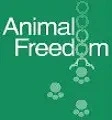Physical integrity, well-being and animal rights |
Promote animal welfare or give animals rights?
Talking about the welfare or well-being of animals is easier than about (the feasibility of) animal rights. Rights are more abstract than the violation of welfare is. We would have come a long way once the welfare of animals kept by man, would no longer be threatened. The free-market-economy makes the situation in cattle farming awkward. What exactly is the relationship between management and animal welfare? Can a farmer be obliged to invest more than can be seen as a result in terms of the well-being of his animals? The life-cycle of many animals that are kept in cattle farming is so short, that some attacks on their well-being do not properly come to expression in the behavior of young animals. Animal Freedom outlines that animals are entitled to the freedom to behave themselves in natural ways. Thinking with this principle of justice as a basis, has the advantage that at a glance the situation for any animal can be estimated, whereas thinking on the basis of preventing from non-welfare takes more time in order to develop an estimation. When the basis of the thinking-process is the promotion of animal welfare, this takes even more time. |
The challenge of animal welfare in farming
Talking about the welfare or well-being of animals is easier than about (the feasibility of) animal rights. Rights are more abstract than the violation of welfare is. We would have come a long way once the welfare of animals kept by man, would no longer be threatened. The free-market-economy makes the situation in cattle farming awkward. What exactly is the relationship between management and animal welfare? Can a farmer be obliged to invest more than can be seen as a result in terms of the well-being of his animals? The life-cycle of many animals that are kept in cattle farming is so short, that some attacks on their well-being do not properly come to expression in the behavior of young animals. Animal Freedom outlines that animals are entitled to the freedom to behave themselves in natural ways. Thinking with this principle of justice as a basis, has the advantage that at a glance the situation for any animal can be estimated, whereas thinking on the basis of preventing from non-welfare takes more time in order to develop an estimation. When the basis of the thinking-process is the promotion of animal welfare, this takes even more time. |
Violation of animal rights
Keeping animals as cattle or as pets, in principle means a violation of their rights. But how bad is this? Before we try to formulate an answer, we start with: which are the matters that are being withheld from a farm animal or domestic pet? Cattle is being cramped in it's freedom to move around, cannot reproduce itself according to it's own wishes and is being slaughtered and eaten at a (relatively) young age.
Theoretically this can be carried out (also on a large scale) without impairing the animal in it's health (assuming the animal is unconscious when it becomes butchered).
It is not so hard to establish what hangs over the welfare of animals, it is far more difficult to establish what enhances their well-being. People are not obliged to be beneficial to the well-being of one another. At best there are rules to protect human well-being. People are supposed to be able to serve their own well-being (as well as have sufficient knowledge on how to do so). People also are not obliged to further the well-being of animals, but (when) are animals kept by people able to serve their own well-being? |
Physical integrity
Animals have tails, teeth or beaks and reproductive organs. Sometimes these are being removed or sterilized (spayed/neutered). Being allowed to keep these physical functions, falls under the right to physical integrity. But does this right fall under animal rights?
In the case of the piglets in industrial farming, their tails are docked in order to enable their well-being. That seems odd, and that is precisely what it is for these young animals suffer from pain when their tail is being cut off. Industrial pig-breeders take to this practise because the older animals, in their hardly stimulant stables, suffer from weariness and start biting each other's tails. That causes more pain than docking the tail does. Is for this reason this action legitimate and an interference with or a furtherance of their well-being?
The answer depends on which life-situation one considers legitimate for the animals. |
Natural housing and behavior
In biological pig breeding, where animals have enough space and natural distraction and f.e. are able to grub in the earth, they hardly get bored and do not bite each other's tails.
The cutting of beaks of free-range hens takes place due to the fact that their numbers in the biological sector are too large to prevent chicken from pecking each other. For that purpose further welfare-measures have to be taken, such as is being done within biodynamic farming and with the hens that have access to grassland. With the way in which chicken are kept in grassy environments, their broods (groups) are small while they have lots of room. These chicken can settle their pecking order in natural ways and there's hardly any harmful pecking amongst each other. By ways of selection or genetic modification, some influence can be exercised on aggressive behavior, but accomodating them in more natural ways produces much more effect on animal well-being. Once man would house animals in more natural ways and give them sufficient room, it is no longer required to violate their physical integrity.
However, both the desire to export animal products as well as the large cattle population, make it impossible to make better welfare circumstances more common practice…. |
|
|
|
|
| |

